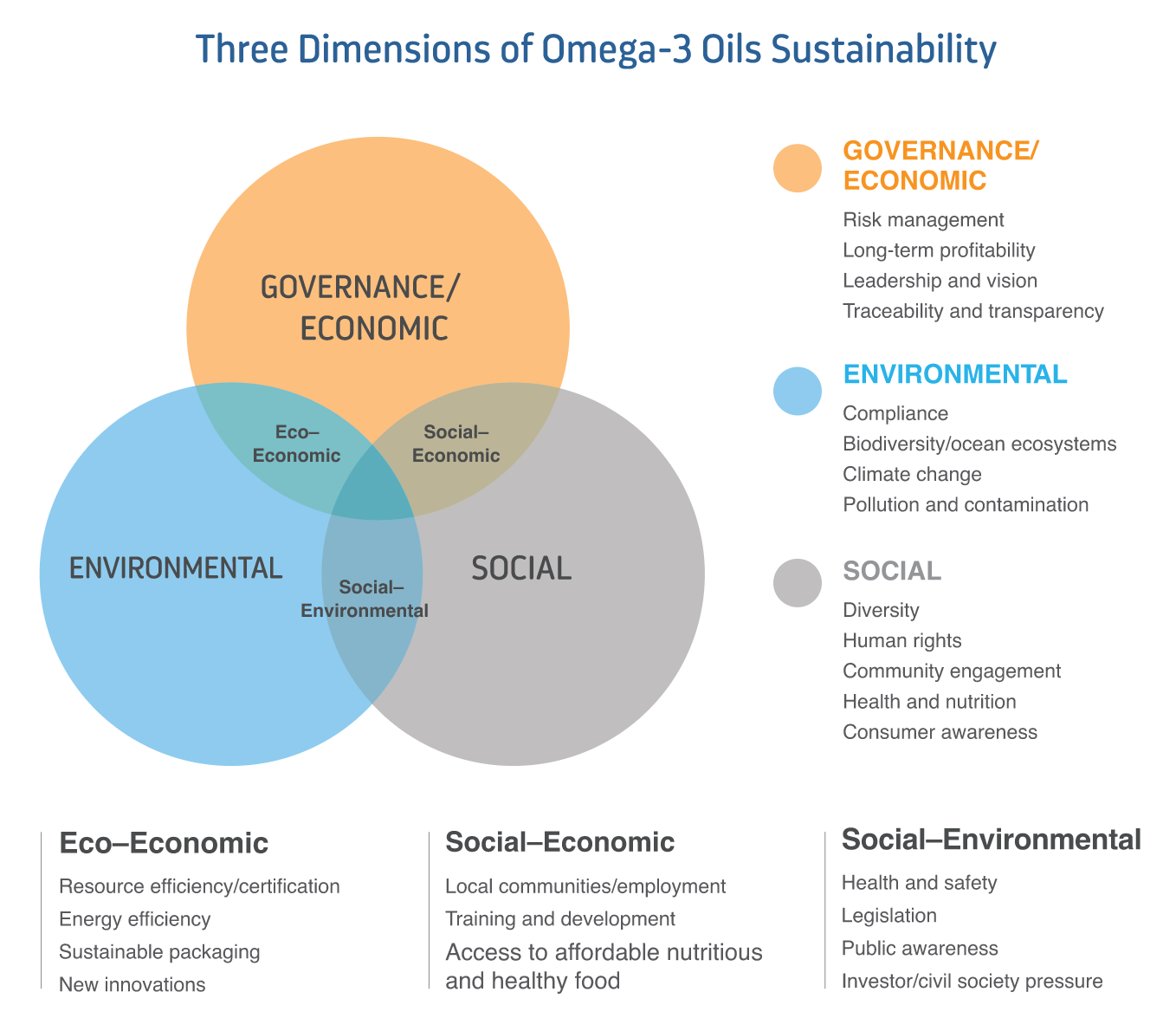What does “sustainable” mean in today’s omega-3 industry?
In a modern context, sustainably produced omega-3s provide a variety of benefits to consumers while also taking into consideration the health of human communities and the planet.
Specifically, the omega-3 industry takes “sustainable” to mean:
- Environmental sustainability – Minimizing short- and long-term impact on the biosphere when harvesting raw materials, processing them and/or selling consumer products containing them
- Governance or ethical practices – Governing organizations well by communicating sustainability progress through robust reporting and transparency practices.
The industry has resolved to focus on these issues and the ways they intersect after a 2023 Horizon Scan analysis commissioned by GOED from sustainable food consultancy Tasting the Future showcased the main environmental, social or governance factors on the horizon for the industry. Pages 4-5 of the report (shown below) outline what companies involved the omega-3 category should consider important when evaluating their sustainability progress.

In a 2024 “materiality assessment” (a common reporting format for sustainability studies), Tasting the Future further narrowed down which of the 20+ factors from the Horizon Scan warranted the most action by omega-3 industry stakeholders. Preventing overfishing, managing emissions efficiently and ensuring transparency regarding products’ life cycle impacts and human rights impacts ranked as the most pressing concerns. Read on to learn more about how the omega-3 industry is managing those issues.
